DUI Lawyer – Media, PA
Our Drunk Driving Attorney Can Help You
In Pennsylvania, there are two ways a driver can be guilty of driving under the influence of alcohol.
- Operating a motor vehicle with a blood alcohol concentration (BAC) of .08% or more, or
- Operating a motor vehicle after alcohol consumption has rendered the operator incapable of driving safely
In other words, although you have likely heard .08% referred to as “the legal limit,” a driver may be convicted of DUI in Pennsylvania even if his or her BAC was below .08%. Impairment may be established through evidence such as performance on field sobriety tests and observations of the office, including slurred speech, bloodshot eyes, and other common signs of intoxication.
It’s also important to note that a person need not actually be driving to be guilty of DUI. The statute prohibits driving or “being in actual physical control of the movement of the vehicle.” Pennsylvania courts typically look at the “totality of the circumstances” to determine whether the person was in control of the movement of the vehicle, which simply means considering various factors to get a full picture of the situation.
Often, location plays a key role in this analysis. For example, a person sitting in a car in the parking lot of a bar after closing will often be determined not to be guilty of DUI, even if the car is running. But, if the same person is sitting in a running car alongside the road a mile from the bar, a conviction is much more likely.
The above examples illustrate just a few of the ways in which a DUI case can be complex. A DUI arrest doesn’t necessarily mean a DUI conviction. But, effectively challenging a DUI charge requires timely, targeted action. If you’ve been arrested for driving under the influence, you can’t afford to wait and hope for the best. Talk to an experienced Media, PA DUI lawyer like Jim Bonner as soon as possible.
Other DUI Charges
Driving Under the Influence of Drugs and Controlled Substances
“Driving under the influence” doesn’t just apply to alcohol. It is illegal to operate a vehicle with any amount of the following in your blood:
- Any Schedule I controlled substance
- Any Schedule II controlled substance not prescribed by a physician
- A metabolite of any Schedule I or Schedule II controlled substance
In addition, a person may be charged with DUI if:
- The driver is under the influence to such a degree that his or her ability to drive safely is impaired (even if the substance in question was legally prescribed)
- The individual’s ability to drive safely is impaired by a combination of drugs, or a combination of drugs and alcohol
- The individual is under the influence of a solvent or noxious substance
Lower-BAC DUI Charges
While .08% is the legal limit for most adult drivers in Pennsylvania—barring actual impairment—certain drivers are subject to significantly lower limits. For example, a minor may be charged with DUI if his or her BAC is greater than .02%. This same measure applies to the operator of a school bus or other school vehicle. Other commercial drivers are subject to a .04% limit.
Fighting a Pennsylvania DUI Charge
Some of the most commonly-asserted defenses to a Pennsylvania DUI charge include:
- Asserting lack of probable cause for the stop
- Challenging the reliability of the BAC testing device
- Contesting the allegation that a person with BAC below .08% was “incapable of driving safely”
- Contesting the allegation that a person in a stationary vehicle was “in actual physical control of the movement of the vehicle”
Effectively fighting the charges requires a thorough knowledge of both DUI law and the procedural demands of the criminal court system. Deadlines for filing requests and notices may be tight, and expert witnesses may be required to challenge technical or scientific evidence such as the accuracy of breath or blood alcohol testing or the proper administration of field sobriety tests.
Choosing the Right DUI Attorney for You
A DUI conviction can be expensive in more ways than one. In addition to potential fines, court costs and other fees, a DUI conviction may result in:
- Significantly increased automobile insurance rates
- Lost work time or job loss due to license suspension
- Limitation on future employment prospects
If you’re facing criminal charges for driving under the influence, it’s in your best interest to speak with an experienced local criminal defense attorney as soon as possible.
Attorney Jim Bonner is a former Delaware County Assistant District Attorney. In addition to extensive knowledge of Pennsylvania DUI law and the technical demands of criminal procedure, Mr. Bonner’s prosecution experience provides him with an understanding of how the District Attorney assesses and is most likely to approach the case.
Put this knowledge and experience to work for you—schedule a consultation right now by calling 833-GET-OUT1 or filling out the contact form on this website.
Pennsylvania DUI Sentencing
The classification of the crime and the sentence imposed for DUI depends on a variety of factors.
Most first offense DUI’s are classified as misdemeanors and are sentenced as follows:
- Six months of probation,
- A $300 fine,
- Mandatory alcohol highway safety school, and
- Drug and alcohol assessment and treatment
However, first offense DUI defendants are treated more harshly under certain circumstances. For example, a DUI conviction carries mandatory jail time if:
-
- The DUI incident involved an accident that caused bodily injury or worse,
- The driver’s BAC was .10% or greater,
- The driver was a minor,
- The driver was operating a commercial vehicle or school bus, or
- The driver refused breathalyzer testing
These additional factors may also result in larger fines, additional driver’s license suspension, and more.
Penalties may be significantly enhanced for second offense DUIs and beyond.
Summary of the Pennsylvania DUI Laws
In Pennsylvania, if you drive a motor vehicle while under the influence of alcohol or drugs, you may be charged with a DUI. Pennsylvania has a three-tiered punishment system that is based on your blood-alcohol concentration. Each tier and each DUI conviction raises the penalty.
Penalties increase for those who drive with a blood-alcohol level of .10 percent or higher. The least severe punishment applies to drivers with a blood alcohol content of 0.08 to 0.099 percent. The most severe sanction is available to individuals with a blood alcohol concentration of .16 percent or more.
You will be classified as being in the highest tier of blood alcohol concentration if you refuse or decline to take a blood alcohol test.
What happens to my Drivers License after a DUI in PA?
If you've been convicted of a DUI in Pennsylvania, your driver's license will be suspended for a period of time. The length of the suspension will depend on the severity of the offense and whether or not you have any prior DUI convictions. If this is your first DUI offense, your driver's license will be suspended for 12 months. After the first 30 days, you will be eligible for a temporary license which will allow you to drive anywhere other than alcohol-related places. If this is your second DUI offense within 5 years, your driver's license will be suspended for 18 months. If it's been more than ten years since your last DUI conviction, and this is only your second offense, you may qualify for limited driving privileges after 90 days. Limited driving privileges are very restricted and will only permit you to travel to work or school and get medical treatment or treatment at an alcohol rehabilitation center.
What about an Occupational Limited (“Bread-And-Butter”) License?
You may obtain a PA Occupational Limited (“bread-and-butter”) License, which would allow you to drive for work, medical treatment, or school during the suspension period. After serving a 60-day full license suspension, all first offenders are eligible for such licenses. To acquire an Occupational Limited License from PennDOT, you must apply.
To Apply for an OLL:
- You must complete Form DL-15 (PDF) Occupational Limited License Petition. Follow the instructions on the petition.
- Send it and the appropriate fee to the address listed on the form. Keep the DL-15A (PDF) portion with your OLL once received.
- PennDOT will evaluate the petition and determine your eligibility by reviewing the violations on your driving record.
- If you do not qualify for an OLL, you will be sent a letter denying your application.
- If you qualify for an OLL, you will be sent an OLL camera card, which you will need to take to the nearest Photo License Center to have your photo taken and receive your OLL.
Is a DUI a Felony in Pennsylvania?
The penalties for a DUI conviction in Pennsylvania vary, depending on the severity of the infraction. Generally speaking, first-time DUIs are misdemeanors, and it depends on whether there is an aggravating circumstance. These may include having a blood alcohol content of 0.10% or higher; driving with children under 18 years old in your car, notably younger than 14 years old; crashing into property other than another car, or committing another violation at the same time, such as speeding over 30 miles per hour over the speed limit. If you commit any combination of these offenses, you can be charged with an aggravated DUI and will have to face more severe charges, including mandatory jail time.
Get the Help You Need Right Now
Facing criminal charges of any kind can be daunting, but taking the next step is easy. All you have to do to get started is dial 610-450-4555 or fill out the contact form on this site.
Search
Office Location
1210 N. Middletown Road, Glen Mills, PA 19342
8 West Front, Media, PA 19063
833-438-6881


